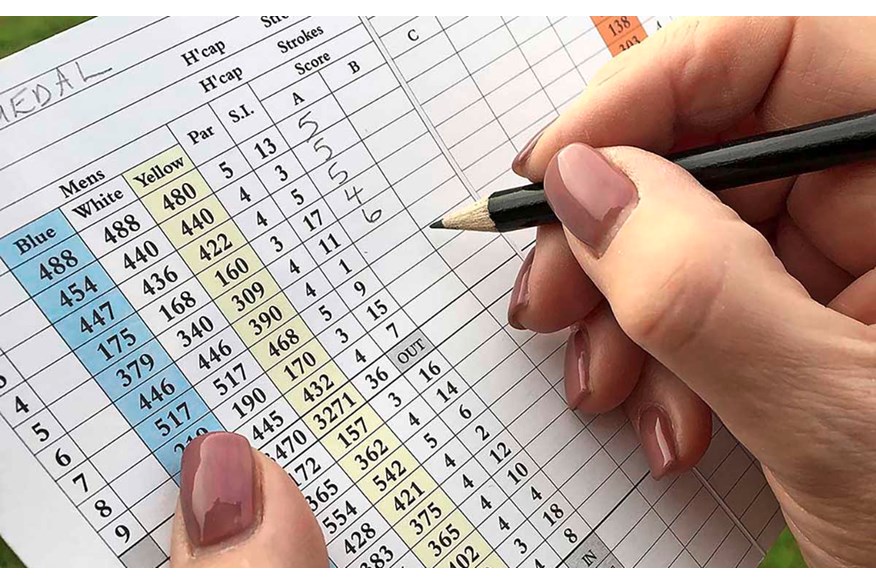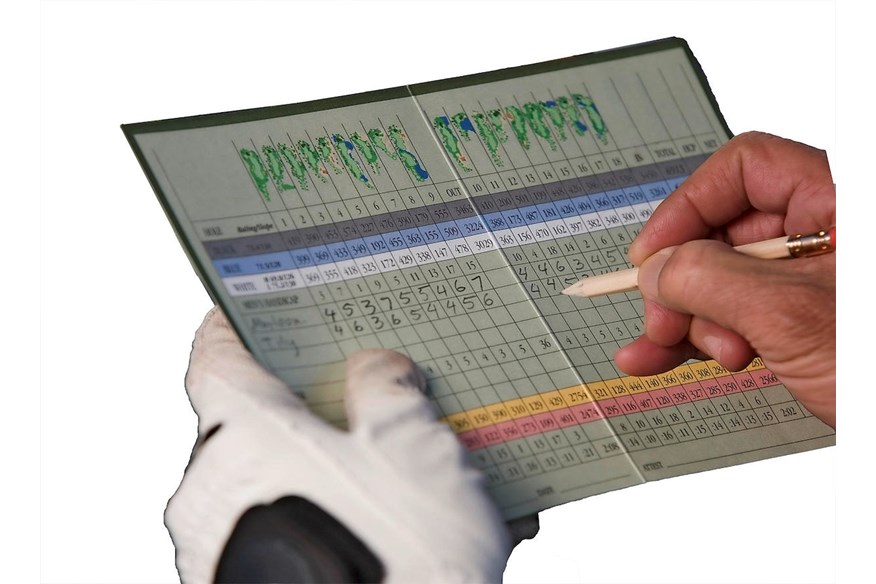“It’s cheating…” R&A to clamp down on handicap abuse – but how will it affect you?
Last updated:

The World Handicap System was introduced to make golf fairer and more inclusive, but with suggestions it’s being manipulated by unscrupulous individuals, the R&A is taking action.
The World Handicap System (WHS) has been one of the most significant changes to amateur golf in decades. It’s allowed casual rounds to count, helped more people maintain a handicap, and created a global standard for golfers.
But, almost four and a half years since its introduction, some golfers still feel the system isn’t quite doing what it set out to do. And, for a number of club players, one uncomfortable question keeps coming up:
“Is it too easy to cheat the system?”
This issue is now front and center for the Royal & Ancient (R&A), as they respond to growing concerns over potential misuse of the WHS.

Why is this news now?
Last year, the R&A conducted a global WHS survey, which garnered over 72,000 responses.
“A large proportion of those responses came from GB&I, and the general outlook was very positive, but there were two clear themes from GB&I respondents,” says Grant Moir, Executive Director – Governance, at The R&A. “One of those was the concern that there is handicap manipulation through general play scores, and the second was that handicap committees need more support to carry out their role effectively.”
On Thursday April 17, 2025, the R&A is taking a direct step in addressing these concerns. At 10am BST, an email will be sent to all golf club managers, and four hours later, all golfers in Great Britain & Ireland with a handicap will receive a similar message. The emails will remind everyone – that’s clubs, handicap secretaries and committees, and individual golfers – of their responsibilities under the WHS. The message reinforces players’ responsibilities under the Rules of Handicapping and reminds clubs to monitor for irregularities. Specially designed ‘flipbooks’ will present these responsibilities in easy-to-digest formats.
“I wouldn’t want to suggest that we’re saying we think there are lots of people out there deliberately doing the wrong thing, but we recognize that even if a small number are doing this, then it can impact on the enjoyment of competition golf, and it negatively impacts on the opinion of WHS,” adds Moir.
“Sometimes people are unaware of what the responsibilities are, and we want to point those out. Once we’ve pointed them out, if you’re deliberately doing something that isn’t in accordance with the rules of handicapping, then it’s the same as doing something that is deliberately not in accordance with the rules of golf. We call that out as cheating in the rules of golf, and we’re prepared to call that out as cheating under the rules of handicapping as well.”

“Is it too easy to cheat?”
The question of dodgy handicaps isn’t new, but it’s become more prominent since the introduction of the WHS. While most golfers have embraced the system and its benefits, there’s a growing concern that a few bad actors are gaming the system for an unfair advantage.
There are two ways golfers looking to fudge their handicaps can manipulate the system:
- Inflating their handicaps: Golfers may deliberately put in bad general play scores to increase their handicap index, thus gaining an unfair advantage in competitions and matches when they play to their true potential.
- Maintaining an unrealistically low handicap: Arguably less common, but the perception is that some golfers will cheat the system by only putting in good scores, thus lowering their index. Why would anyone do this? Ego, for one, but also, many elite events only grant entry to golfers of a certain handicap. Open Qualifying is a prime example, as it’s open to anyone off scratch or better.
It’s important to be clear that such manipulations were possible under the old handicap system – suggestions of ‘sandbagging’ and handicap bandits have been around for as long as golf has had any form of handicap system – but many golfers feel it’s much easier to manipulate your handicap via general play scores than it was when your only chance to do so was in competition.

The way forward
The R&A isn’t making any changes to the WHS at present. Rather, the emails and ongoing educational campaign are designed to ensure that the WHS serves its intended purpose: creating fairness and inclusion in the game of golf. While cheating will always be a concern in any system that depends on self-reporting, the R&A’s message is clear: they are committed to monitoring and refining the system as needed.
But for now, the key is trust: trust that the vast majority of golfers will continue to use the WHS as intended and uphold its integrity.
Hannah McAllister, CEO of Wales Golf, said: “We understand how important handicapping is to both our clubs and players, and how vital it is to use the WHS correctly.
“This joint campaign with our partners at The R&A and GB&I Golf gives us a valuable opportunity to address some of the concerns raised by golfers across Wales, and ensures the WHS runs smoothly and benefits everyone – players, clubs, and officials alike.
“One of the key issues we’re tackling is handicap manipulation, and the responsibilities that golfers have around submitting scores and maintaining their handicap. This campaign is focused on educating players on how to use the WHS fairly, while also supporting clubs in managing the system effectively.”

Make sure you’re playing by the rules
Here’s a reminder of what you should be doing to tow the line with WHS and ensure your handicap is accurate:
- Pre-register: Following the pre-registration process for General Play scores – and don’t be selective as to which scores you submit
- Try: Try your best, finish the round, and submit all acceptable scores as soon as possible.
- Certify: Check and sign the scorecard of the player you are marking for, making sure it is accurate.
- Submit: While you’re not obliged to record a General Play score every time you play, the more scores you submit, the more accurate your Handicap Index will be.
- Be honest: Act with integrity by following the Rules of Handicapping. Don’t use or circumvent the Rules to gain an unfair advantage.

What happens next?
Despite these proactive efforts by the R&A, the question remains: is the system doing enough to prevent cheating? Critics argue that more active oversight is necessary to ensure fairness, particularly with casual players who may not face the same scrutiny as those in tournaments.
Some clubs are already stepping up to the plate. By closely monitoring golfers’ scores, looking for inconsistencies, and flagging suspicious patterns, they’re attempting to catch any potential manipulation.
But with millions of golfers using the system, identifying discrepancies isn’t always straightforward. Golf scores naturally vary – regardless of ability or handicap, there’s always a large gap between a golfer’s best and worst days. On top of that, some players perform better in general play, free from the pressure of competition, while others thrive under the intensity of a tournament, where the stakes sharpen their focus.
One suggestion has been to make it mandatory to record every round played. The R&A is reluctant to bring that system to GB&I, highlighting the impact it would have on the popular friendly 2v2 match format with gimmies the norm, plus the ramifications for pace of play if every golfer had to putt out on every hole.
For the R&A, the answer lies in striking a balance between fairness and accessibility. The WHS was designed to be inclusive, but this broader reach has led to some growing pains. As more golfers participate, the need for vigilance and ongoing adjustments becomes clearer.
For now, the R&A is committed to refining the system, but there’s no quick fix to ensuring that all golfers adhere to the integrity expected.
A system still in development
The World Handicap System has undoubtedly made golf more accessible. But, like any evolving system, it has its flaws. The concern about cheating, while not new, has pushed the R&A to take steps to reinforce trust and transparency.
As the system continues to develop, it will be crucial for everyone involved – players, clubs, and the governing bodies – to ensure its integrity remains intact.
Ultimately, it’s our game – and it’s our duty to protect it.
